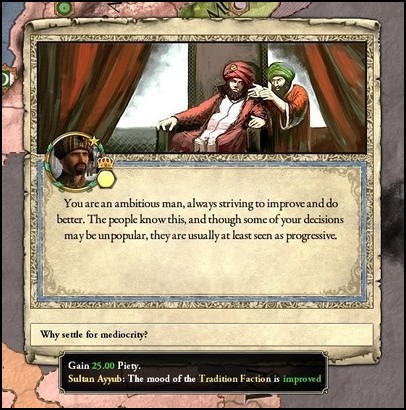Part 20: Mubazirun
Chapter 20 – Al Mubazirun – 1299 to 1305With the tumultuous and chaotic years that have recently dominated Iberia finally coming to an end, Al Andalus enters the fourteenth century with a new sultan. Ayyub was certainly no prodigy, but he was determined and capable, and those were qualities that the sultanate was sorely in need of.
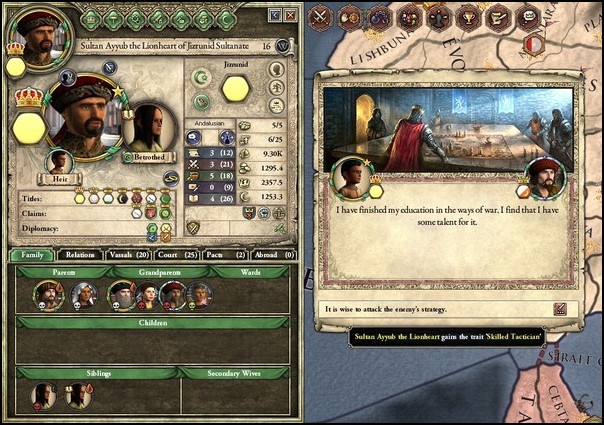
One of Ayyub’s first actions upon becoming Sultan was to order the construction of a string of hospitals, interspersed throughout the narrow streets and growing quarters of Qadis. He still remembered the plague-ridden years of his childhood, and was determined to prevent such a travesty from hitting his capital again.

The young sultan even offered immense grants to any scholar or physician willing to study the causes of the plague, and how it could be treated, promising great rewards should their experiments yield results.
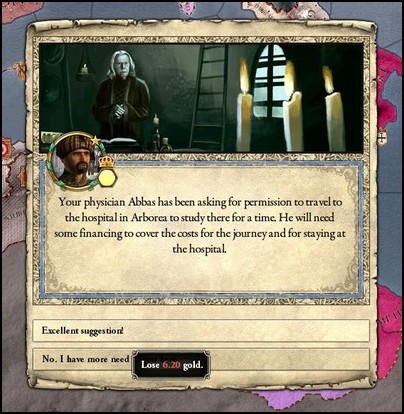
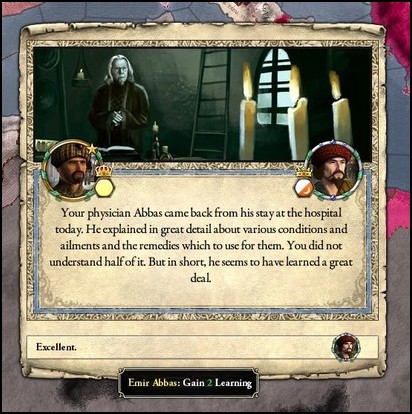
Ayyub’s ambitions were not limited to books and journals, however. He had spent long hours reading up on the history of the Jizrunids, and after the weakness of recent sultans, he was ready to do anything it took to return to the heights of Emir Galind and Sultan Hakam.
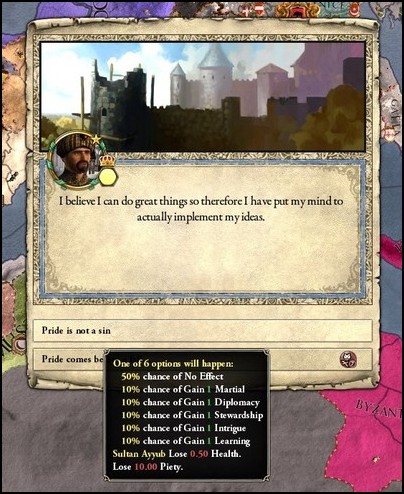
The young sultan's passion and talent, however, lay in the way of the martial arts. Even as a child, he had detested the political games of the Majlis, instead finding his home amongst sweaty soldiers and gruff generals. And with his regency focused on defeating the rebellions and uprisings that had erupted over the past few years, Ayyub had been allowed to hone his swordcraft and study old stratagem, gradually tuning his abilities as both a soldier and commander.
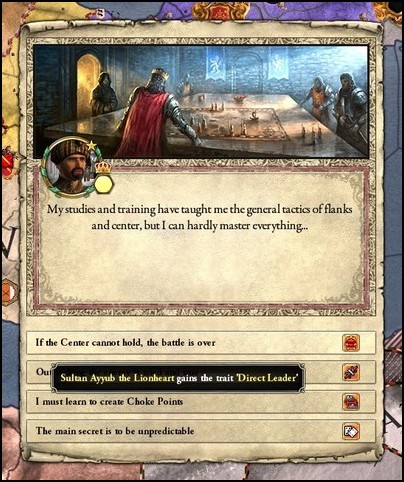
Thus, it didn’t come as much of a surprise when Ayyub announced his intention to go to war a few short months into his reign. He had been raised and tutored by the lords of the Majlis, so they didn't oppose him from doing so, but Sultan Ayyub still wasn’t able to declare on the northern Christian kingdoms – not yet, anyways.
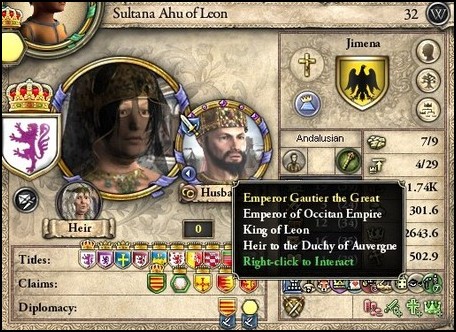
Queen Ahu, fearing yet another Moorish invasion, had formed a pact with the newfound Occitan Empire - which stretched from Normandy to Lower Egypt. This nascent relationship quickly flourished as Emperor Gautier courted the Queen, culminating in their marriage and alliance. This, along with the preexisting Castilian-Leónese alliance, effectively banded all of the north against Al Andalus.
And with that, another powerful alliance between the nations of Christendom was forged.
So Ayyub turned his eyes elsewhere, and shortly afterwards he ordered the construction of new shipyards in the Qadisian harbor, a development that surprised many, since Al Andalus had never really been a seafaring power.
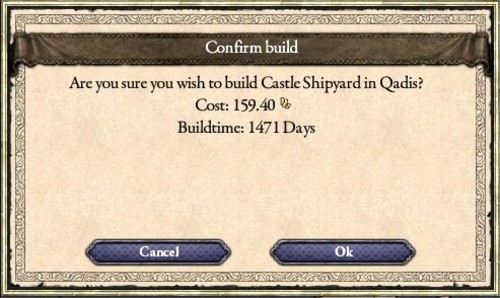
The Sultan’s plans surfaced a few months later, when the royal faction within the Majlis presented documents that lay claim to the city of Arborea. According to these obviously fabricated claims, the Umayyads had captured Arborea centuries past, when the Caliphate was still at its apex. Apparently, Arborea then served as an outpost of the empire until its collapse, sometime during the mid-700s, when Christian principalities moved in and reclaimed it.
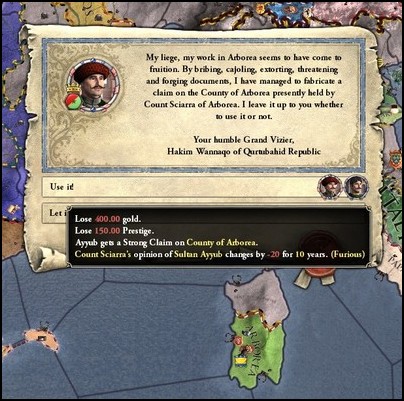
Few actually believed this tale, but Sultan Ayyub didn’t care how legitimate the claims were, he was itching for any reason to go to war. And mere days later, he delivered the traditional sermon and declared war on Arborea.
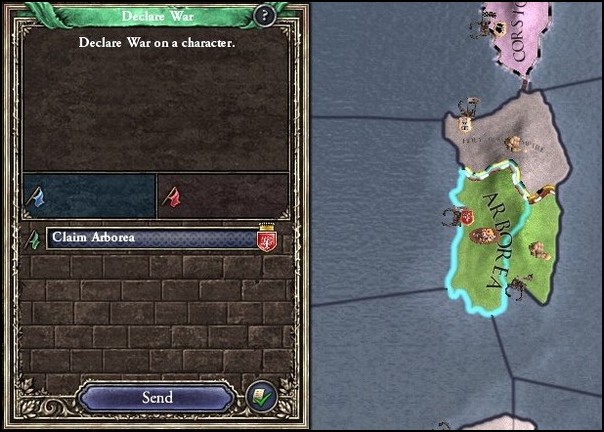
The Count of Arborea didn’t know what hit him. One day the seas were calm and serene, and the next hundreds of Andalusi galleys were jostling through the waves, driving towards Sardinian shores.
The Andalusi didn't meet with much opposition, and the beaches were quickly overrun by the thousands of Muslims, all led by a jubilant Sultan Ayyub.
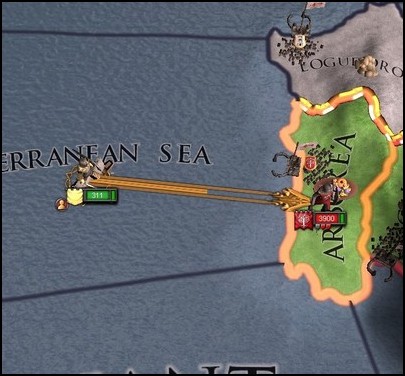
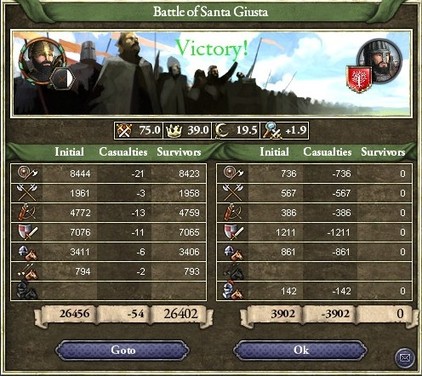
Once they had a firm hold on the western coast, the Andalusi marched halfway across the island and captured Cagliari, looting and torching the city. The Count, whose appeals to the Holy Roman Emperor had gone ignored, quickly sued for peace as his capital was ransacked.
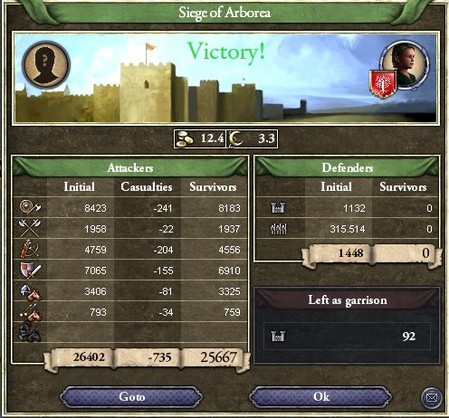
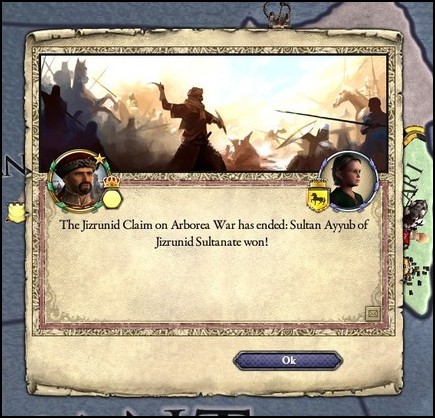
It wasn't exactly the glorious victories of earlier Jizrunid kings, but as the first successful offensive war in quite a few years, news of Ayyub's victory was met with cheers and celebration in Qadis. A few viziers and sheikhs of the Majlis even visited the Sultan to offer their congratulations, gifting him with large chests of gold and treasure, caskets of alcohol and spirits, and the flesh of women and men alike.
Ayyub didn’t partake in the drinking and partying, however, he saw Arborea as nothing more than a stepping stone to greater fortunes.
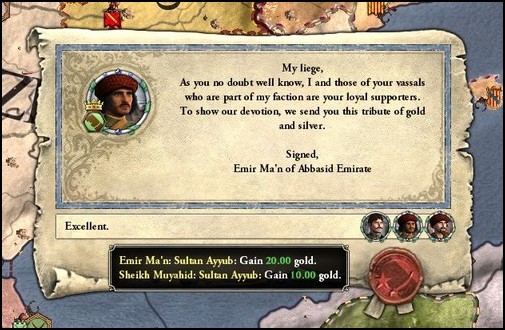
One thing Ayyub did gain from the war was experience. The long hours and endless days he'd spent training finally paid off, with the Sultan showcasing his brilliant swordmanship as he fought alongside noble retainers and common soldiers alike, cutting down dozens in the thick, suffocating heat of battle.
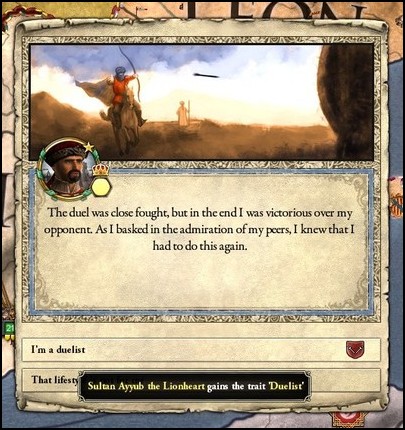
Still, the Andalusi army was nothing special, drawn entirely from the levies of his emirs and sheikhs. To make matters worse, the Sultanate’s only standing army – the royal cavalry retinue – had been utterly destroyed in the previous wars with Castille and León.
Ayyub was determined to change that. So upon his return to Qadis, the Sultan proclaimed the foundation of a new order of warriors, financing the construction of large training grounds to serve as barracks and instructing his inferiors to begin recruiting young children to serve as future soldiers.
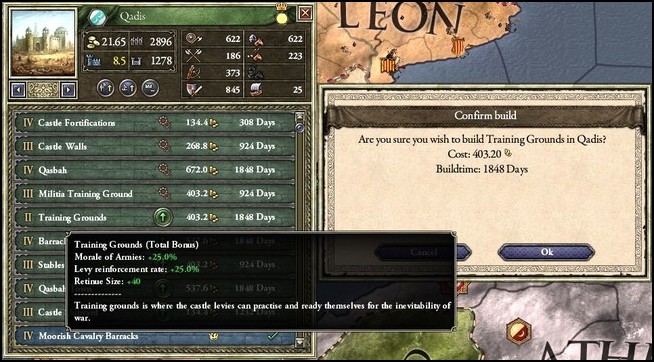
Hoping to turn this new retinue into a highly mobile and well-trained force, Ayyub used his contacts to attract proven generals - including Ismail Yahaffid, Hilal Abbadid and Isa ibn Musa - who were to train the youngsters. Over a period of several years, these green boys were subjected to harsh regimens and strict restrictions, trained to respect the authority of the Sultan above all else.
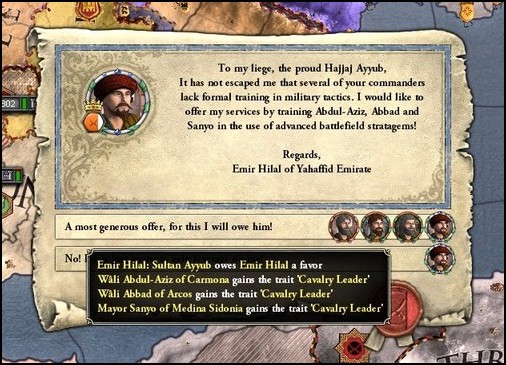
By 1303, the unseasoned recruits had been hardened into disciplined soldiers, and the retinue was ready for its first taste of combat. Sultan Ayyub took personal charge of his warriors, dubbing them al-Mubazirun, after the heroes of old.
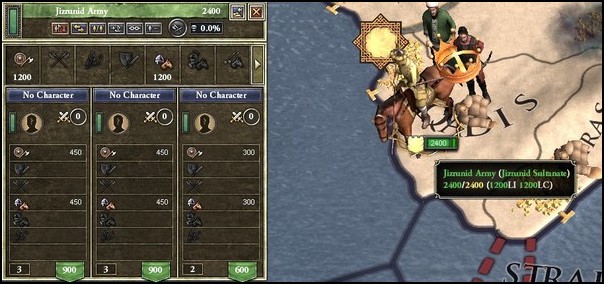
Meanwhile, in the cradle of civilisation, the Fatimids have managed to bring a halt to their decline. After recapturing several rich Syrian cities, the Shia Caliph declared Jihad on the Kingdom of Jerusalem, triumphantly marching into the Holy City just weeks later.
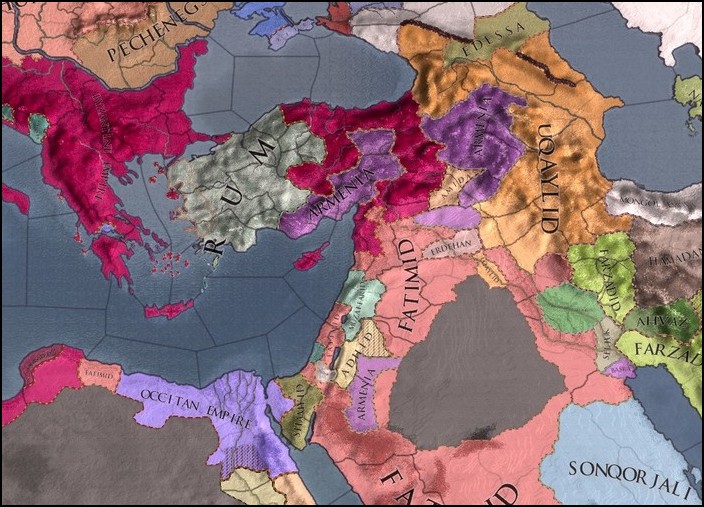
The King of Jerusalem was killed in the fighting around his capital, and his immediate family were forced to escape the city and flee west, scattering to every corner of Europe. Some accepted exile in France or the Holy Roman Empire, but the king's heir decided to return to his ancestral homeland - Iceland - where he declared himself the king of the "North Sea Kingdom" and vowed to exact his vengeance on the saracens.
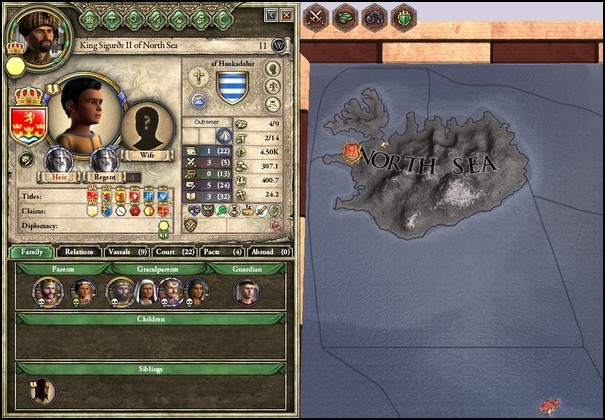
Back in Iberia, as winter began its gradual retreat, Ayyub approached the Majlis and requested the authority to declare a holy war. The viziers and estate-holders debated the issue for a short while, but Ayyub had grown to become a popular figure amongst both the aristocracy and the general public, and the eventual vote was near-unanimous.
A few days later, envoys arrived in León carrying a declaration of war, though thousands upon thousands of Andalusi were already pouring across the border.
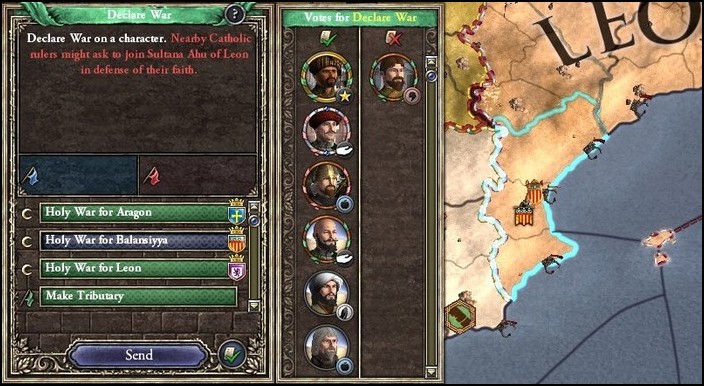
As Ayyub had expected, the New Christian Alliance quickly came to the defense of Queen Ahu, with both Castille and the Occitan Empire pledging thousands of troops to the war effort.
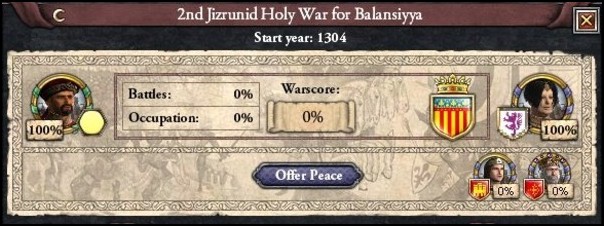
And it wasn't long before they fulfilled that promise, with an army numbering 18,000 and composed of a conglomerate of Leónese, Castilian and French soldiers descending from the north, determined to repel the Andalusi before they could capture any forts.
Sultan Ayyub pulled his army back for a few days to judge the scenario. After thoroughly scouting out enemy movements, he pounced forward again and led the Mubazirun into the first engagement of the war, closely followed by the rest of the Andalusi levies.
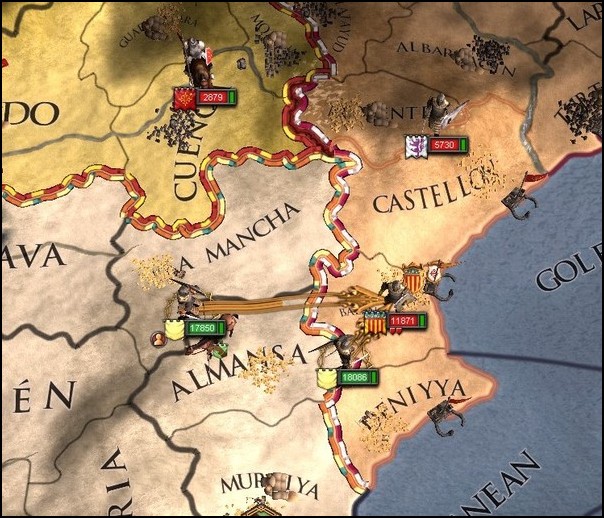
The battle was short and decisive. The Christians had underestimated Andalusi numbers, and Ayyub was able to use his combat width to great advantage, quickly encircling the enemy army and forcing them to break.
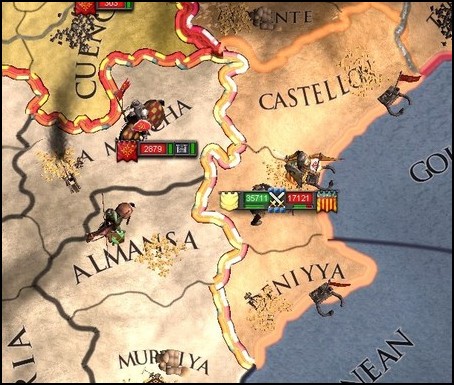
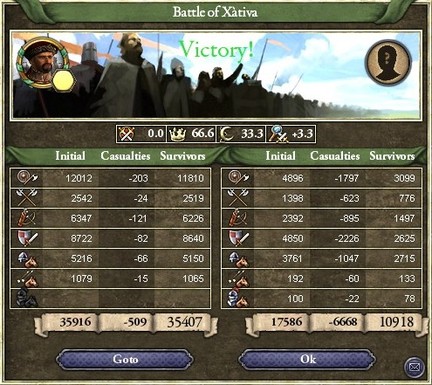
The shattered Christian army was forced to retreat, but as they fled northward again, another large enemy army pushed into Muslim territory. This time composed almost entirely of Occitan forces, Sultan Ayyub once again led his army into combat, eager to test the mettle of this newfound empire.
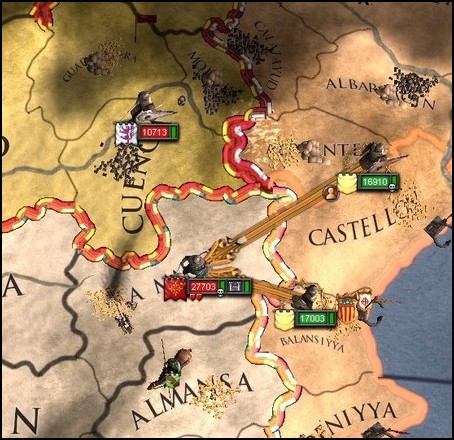
In terms of numbers, the two sides were fairly even. In terms of quality, not so much.
The Mubazirun cut through the Occitan army like a knife through melted butter, with Sultan Ayyub leading the elite force in countless line-breaking charges. By the time the sun had set on the battlefield, the Occitan army was in full retreat, leaving almost 12,000 dead behind them as they fled.
News of this crushing victory quickly spread to every hall and hearth in Iberia, and before long, Muslims high and low, noble and common, rich and poor were all hailing Ayyub as Galind Kingkiller come-again.
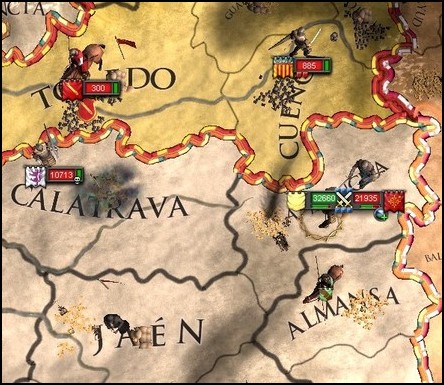
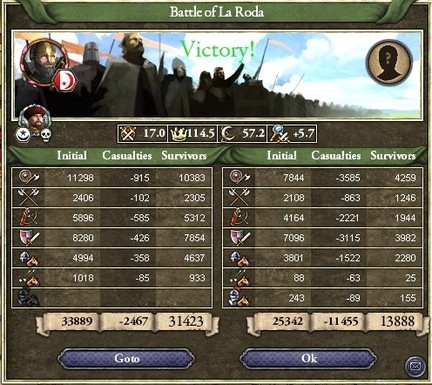
Ayyub didn't let his attentions waver from his campaign, however. With the Christian armies all but destroyed, he sent half of his forces east to begin capturing enemy territory, whilst he personally led his retinue on a few raids and recon missions. Another Leónese army entered Mursiya a few weeks later, however, and Sultan Ayyub backtracked and pinned it down at Albacete.
Numerically inferior, the Leónese met with defeat yet again, quick to throw down their weapons and plead for mercy.
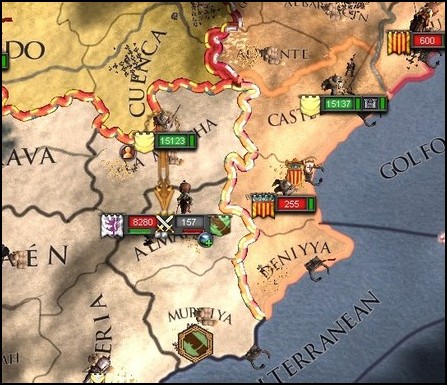

Dozens of commanders and generals were chained and imprisoned, and astonishingly, Queen Ahu herself was found amongst them. There is no doubt what Ayyub's forebear would have done, but even if he matched Galind Kingkiller's tactical ability and popularity, he had not inherited his sheer ruthlessness and cruelty.
Instead, Ayyub reached an agreement for peace with the Occitan emperor, who sued for peace and submitted to all Andalusi demands, ceding a rich stretch of Mediterranean coast in return for his wife and empress.
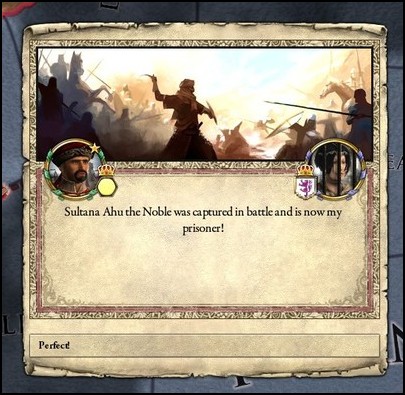
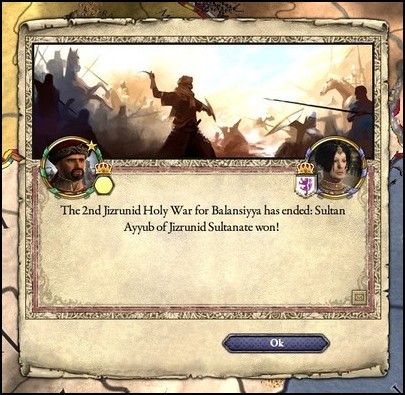
With that, the shameful loss of Ayyub’s father is avenged and the Christian powers are once again humbled, reasserting Andalusi dominance in Iberia. The Sultan returns to Qadis to find a whole host of noblemen waiting to praise and commend him, even those who’d previously detested him.
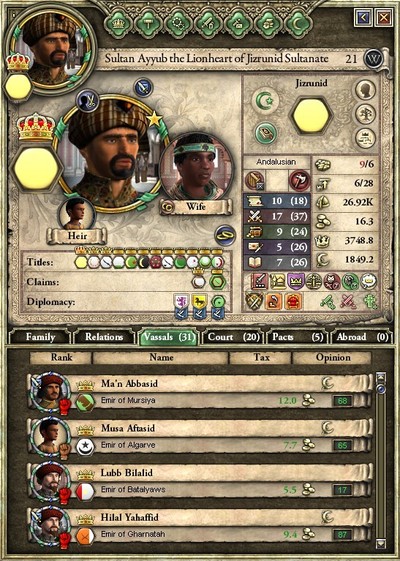
As was usual, however, Ayyub simply didn’t care for it. Within days of returning to the capital, he was itching to be on the march again, eager to feel his heart hammering against his chest, to feel the rush of adrenaline pumping through his veins, to feel the weight of a blade clenched in his fist.
Sultan Ayyub had been ruling for less than five years and he’d already achieved more than his regency and his father had in twenty, but that wasn’t enough. He would have more, much more, he was sure of it.
